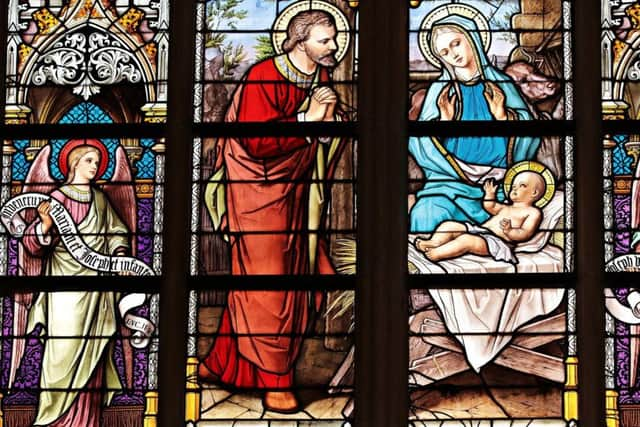David Quinn: There are consequences to trying to '˜kill' God


He has been banished almost completely. He is regarded as an embarrassment, as an obstacle to our freedom, as a relic of a more primitive age.
Many people have done the same thing in their own lives and for the same reasons.
Advertisement
Hide AdAdvertisement
Hide AdGod became for them a symbol of the word ‘No’ and people don’t want to hear that word in their lives.


Many others who still believe in God and want Him to be part of their lives want to reduce Him to the role of a servant of their wishes. He is good to turn to when you are in trouble, but He is basically there to smooth the path for you, to affirm you and give you a pat on the back for your efforts.
He is not there to challenge you to greater things, never mind be a judge.
It was Nietzsche who had the madman run through the town saying, ‘God is dead and we have killed Him’. But the ‘we’ to my mind includes the Christian Churches as well.
Advertisement
Hide AdAdvertisement
Hide AdIf God in many people’s minds represents the word ‘No’, it’s because the Church has often presented Him that way. And this is without even mentioning the hugely harmful effects of the abuse scandals.


So, the Church has also helped to ‘kill’ God and eliminate Him from view. Except you can’t really ‘kill’ God, of course, you can only pretend He doesn’t exist and that He doesn’t matter.
The task before all Christians now is to make Him visible again. This could hardly be more important. It is the first order task of all first order tasks.
Nietzsche also pointed out the consequences of ‘killing’ God. He said: “When one gives up the Christian faith, one pulls the right to Christian morality out from under one’s feet. This morality is by no means self-evident...
Advertisement
Hide AdAdvertisement
Hide Ad“By breaking one main concept out of Christianity, the faith in God, one breaks the whole: nothing necessary remains in one’s hands.”
One thing that belief in God sustains is the belief that we are all created equal in dignity and moral worth.
I am not convinced this can survive the ‘death’ of God over the long term.
Evolution on its own suggests the opposite; that we are radically unequal.
Advertisement
Hide AdAdvertisement
Hide AdMany of the critics of Christianity believe we are of equal dignity and moral worth without being able to give this a proper philosophical justification. They just assume it without realising they assume it because 2,000 years of Christianity has made it seem self-evident.
It is not self-evident at all.
There is no organisation, no religion, no culture, no society, nothing comprised of human beings that does not have dark chapters. You can’t point to anything; there is no idea that does not have dark chapters.
The 20th century is full of bad secular ideas, some of which killed millions of people. Think about the number of people killed in the 20th Century in the name of equality, in the attempt to create a classless society in the Soviet Union, for instance.
But does this mean that the idea of equality is bad in itself? The answer is ‘no’.
Advertisement
Hide AdAdvertisement
Hide AdThe idea of equality is either a good or a bad idea on its own merits. So, I would take the same attitude towards Christianity.
The Church was too authoritarian in the past and there had to be a move towards more personal freedom.
But it has sometimes come at the expense of other values, like the right-to-life, or marriage and the family.
It’s terrible to see so many fathers not helping to raise their own children.
Advertisement
Hide AdAdvertisement
Hide AdI also think it is a bad thing if people lose sight of the transcendent aspect of life.
St Augustine’s words are permanently true: “we are made for you, O Lord, and our hearts are restless until they rest in you”. When people aren’t looking for God directly, they will look for substitutes.
The Celtic Tiger was such a one. But what is really regrettable is that when many people think of the Church, they don’t think of Jesus, they think of the institution.
We need to change that. Even people who dislike the institution intensely tend to have a good opinion of Jesus.
Advertisement
Hide AdAdvertisement
Hide Ad• David Quinn is a weekly columnist with The Sunday Times. He is the ex-editor of The Irish Catholic newspaper and former columnist and religious affairs correspondent for the Irish Independent. He established The Iona Institute, a think-tank that argues in favour of the traditional family and the place of religion in society.
‘How We Killed God’ is published by Currach Press (£14.99/€16.99). It is available on www.currach.ie and in bookshops.